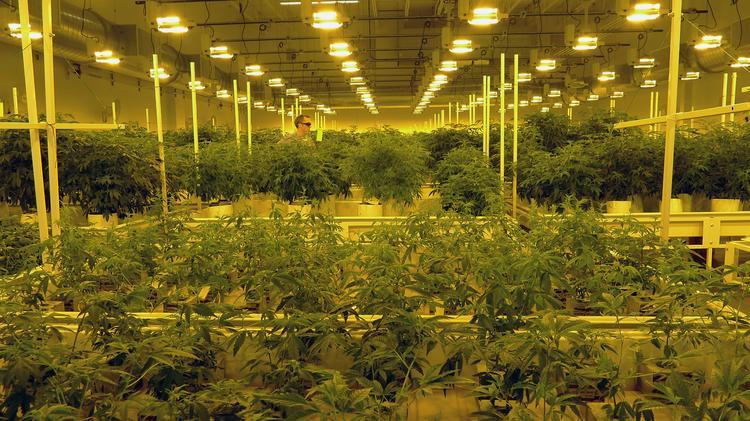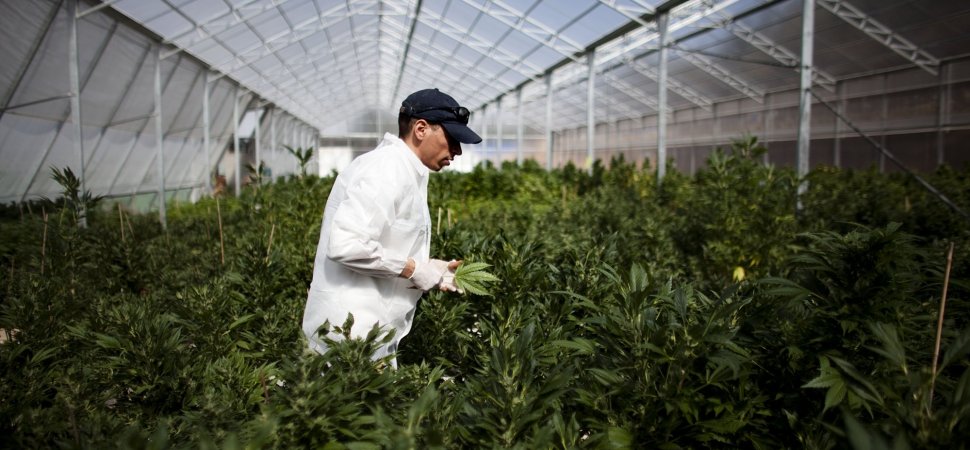Steve DeAngelo, a veteran marijuana activist turned entrepreneur, warns that as marijuana prohibition ends and corporations start entering the industry, the pioneers could lose their place to disruptive technologies and business models.
Marijuana legalization means that bigger corporate interests and institutional capital will enter the industry and start competing with the businesses and entrepreneurs who have been at it for decades.
But what does this mean for the industry's activists and pioneers who protested federal law, got arrested, and created the very industry that is attracting attention as one of the fastest-growing sectors in the U.S. economy? Entrepreneurs will be displaced, says Steve DeAngelo, founder of Harborside, the largest dispensary in the U.S., during his keynote address at the National Cannabis Industry Association business summit and expo in Oakland on Wednesday.
DeAngelo explains that there are only ten states in the U.S.that haven't reformed their cannabis laws in some way, there are eight ballot measures across different states to pass more reform this November, and the DEA could recognize that cannabis has medical benefits and might reschedule it this summer. All of this change will open the industry up to new entrants, bigger, more mainstream companies, and institutional investment. While legalization will be overwhelmingly positive, it won't be without negative effects on the current industry.
"This is going to the painful, it will hurt a lot of people who have been in the industry for decades," says DeAngelo. "It's going to hurt the very people who have helped bring the industry to today."
DeAngelo explained that industry newcomers have the ability to raise more money than legacy players because they have more connections to active capital markets outside of cannabis, he says. The new entrants will introduce disruptive business models that will force legacy businesses to change the way they have been doing things for decades.
"Legacy cannabis companies will need to learn how to adapt to a much more intense competitive environment and changing cultural landscape," says DeAngelo. "The folks coming in are not from the cannabis underground, they come with different values. There will be a process of adaptation for the legacy entrepreneurs."
A lot of the folks coming into the legal cannabis market are from other industries and have established political power and financial resources, says DeAngelo.
"Some of these players have been able to influence legislation to game the system to their benefit," says DeAngelo. "In Nevada, there is a provision that gives the distribution of cannabis exclusively to alcohol distribution companies. Guess who put that one in there?"
As the DEA and FDA look to possibly reschedule marijuana under the Controlled Substances Act, DeAngelo says if the federal government decides marijuana has medical benefits, it will help pharmaceutical companies enter the industry.
"It's evident that rescheduling will be a platform for Big Pharma to come in and take significant marketshare," says DeAngelo.
But as different formulations of cannabis hit the market, more people will try cannabis products.
"More sophisticated products like vape pens, transdermal patches, pills, topical creams, beverages and edibles will provide new adopters, newcomers to cannabis with more socially acceptable ways of using cannabis," says DeAngelo.
Once federal law is reformed and national brands are created, institutional investors will come into he space and start acquiring the strongest brands.
"The institutional investors are almost here, I can hear them in the hall way," says DeAngelo. "When they come, there will be a rich wave of exits, of acquisitions of companies who have played their cards right and been smart. I think those first acquisitions will be science companies, medical companies, companies that do genetics, others that explore new formulations. We will then see cannabis beverage companies that will be acquired by huge mainstream beverage corporations, companies that already make beverages at large scale."
As the cannabis industry changes, as more companies come into the market from outside of the industry, more customers will come to use cannabis.
"I don't think this is a bad thing," says DeAneglo. "All of this is a good thing. There is this monumental collision that is about to happen between the corporate world and cannabis. If we are ever going to achieve our goal, if this plant is ever going to get in the hands of people all over the world, this will be necessary."
Lastly, DeAngelo spoke directly to the legacy entrepreneurs and the newcomers.
The legacy entrepreneurs, DeAngelo says, are going to be called upon to make one more sacrifice--to let go of the cannabis plant and let it go completely mainstream, which will mean some pioneers will lose their place and new entrants will replace them.
"Let's make this sacrifice gracefully, we need to release this plant and allow her to go out, get wings, claim her destiny, to go out and help every single person she can help and we are not going to do it ourselves," says DeAngelo. "We have to welcome these newcomers, we need to let them help the industry."










